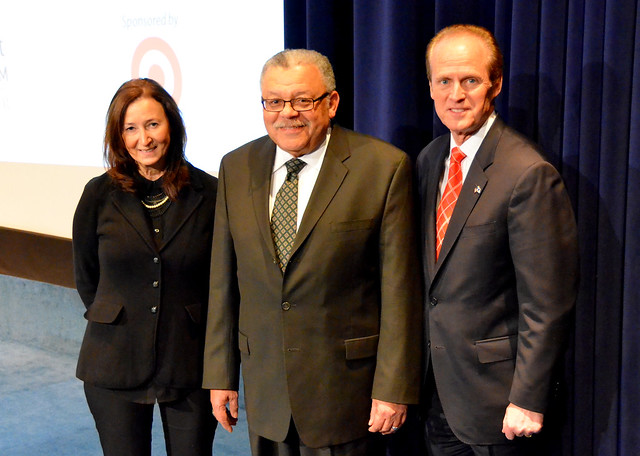 |
| Conversations on Law Enforcement: An Evening with Charles H. Ramsey |
Commissioner Ramsey began the program by telling the audience about how he “accidentally became a police officer.” As a young man, he worked in a grocery store where two officers frequently helped close up shop. One asked if he was interested in being a police officer. Despite plans to become a doctor, something about the offer had an appeal, including the fact that the department would pay for his college tuition. Ramsey signed up, became a cadet, and knew that police work was his calling.
Commissioner Ramsey remembered the challenging times police officers faced in Chicago during the 60s and 70s. This included the biggest controversy for the department at the time – integrating police cars. He said, “They called them salt and pepper cars.”
The Commissioner also shared how his philosophies on policing have changed over the years. “When asked what my fundamental duty is as a police officer, I used to say, ‘to enforce the law.’ Now I say that it is to protect the constitutional rights of all people. Those are two very different things.” He also stressed the importance for officers “to strive to make every contact [with the public] as positive as possible,” and that the job really is ultimately about service.
Two of the biggest issues Commissioner Ramsey hopes to see change for police departments moving forward is a greater focus on community policing balanced with data driven systems, and more investment in the mental health of officers around the country.
In closing, Ramsey enthusiastically shared his support of the National Law Enforcement Museum being built, explaining its importance to the country. “[The Museum] captures the good, captures the bad, captures the real version of what police do. Without it, it would be left to Hollywood.”
Finally, Mr. Floyd thanked Commissioner Ramsey for what he has done for the families of officers who have died in the line of duty, acknowledging those in attendance who came to see him for that very reason.

